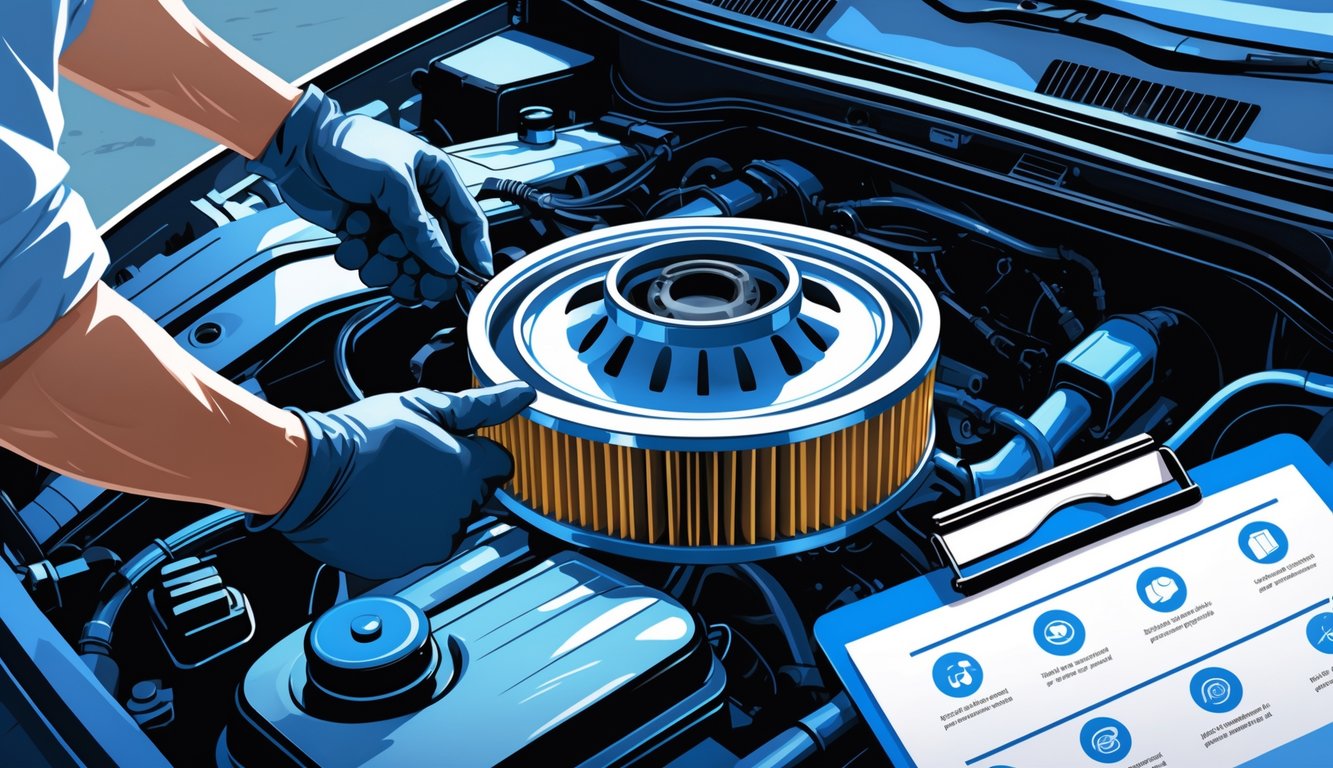
Incomplete Combustion Impacts
Incomplete combustion—every tech’s favorite phrase. Dirty filters choke the engine, so there’s less oxygen. That means half-burned fuel, carbon buildup, and emissions go nuts. Carbon monoxide, hydrocarbons, all that stuff emissions controls are supposed to handle (Motorist.org).
Car feels sluggish, sure, but the real pain is the hit to air quality. Not just about failing smog checks, either. When combustion’s off, the catalytic converter works overtime—and that part costs a fortune. Even the cabin stinks more with a dirty filter, which I learned after a humid city drive (SRB Equipment). Now I keep a spare filter in the trunk, right next to an ice scraper I never use. Still forget oil changes, though.
Factors That Affect Air Filter Longevity
People act like air filters last forever. They don’t. Two cars, same week, totally different filter life. City driving, dirt roads, “scenic shortcuts”—all of it trashes filters way sooner than that little sticker says. Why do I even bother checking the mileage, honestly?
Driving Conditions
City miles, highway miles—totally different beasts. Ever tried inching along in 98-degree traffic, AC on full blast, sweat trickling down your back, and you just know your air filter’s gasping for air? I mean, I’m not making this up; Don Hattan’s tips basically say heat, idling, and endless stop-and-go quietly roast your filter way faster than you’d expect.
I spent a whole year stuck in city gridlock during wildfire season—racked up 15,000 miles, popped the hood, and the filter looked like I’d driven through a volcano. Rain? Does nothing. It just splashes oily gunk and invisible junk into every vent. Two cars, same model—one babied in a garage, the other pulling rideshare duty all day? That Uber filter’s toast long before the manual says it should be. Manufacturer’s “every 15,000 to 30,000 miles”—yeah, maybe if you’re living in a bubble. If you’re stuck in traffic or dodging construction dust, that filter’s losing the fight from day one.
I’ll be honest, I skip the manual half the time. Just grab a flashlight, yank the airbox open, and if it’s more gray than tan, I’m swapping it out. Not exactly rocket science.
Dirt and Debris Exposure
Let’s just say it: filters don’t know pollen from pulverized asphalt. Out in the sticks, or next to a gravel lot? Doesn’t matter if it’s “premium.” I’ve driven behind combines—dust, hay, bugs, weird mystery bits—clog up every pore. VEHQ says filter efficiency tanks once it’s jammed with micro-crud.
I met a guy who swore his reusable filter “never needed changing.” Guess what? His check engine light thought otherwise once dust caked up. Don’t push your luck there. Dry spells, pollen, pothole dust—filters get hammered.
Charts and tables never show what a quick gravel detour after rain does—just blasts silt into your intake. So yeah, if you’re living rural or driving through dust daily, plan on swapping filters sooner than the manual dreams of. Every mechanic I’ve talked to says the same: rural, dusty? Your filter’s not making it to the “recommended” mileage. Not exactly comforting when you’re watching your gas bill climb and wondering why you’re filling up twice as often.
Benefits of Clean Air Filters for Vehicle Owners
Saw a guy at the gas station banging his hood, car stalling, like that’s going to unclog his intake. Skip your air filter swaps and your wallet just keeps bleeding—car runs grumpier, and you never notice until you’re stuck on the side of the road or cursing at the pump.
Improved Engine Efficiency
My mechanic buddy texted me a pic yesterday—filter crammed with bugs and leaves, honestly looked like compost. People expect miracles? Dirty filter, less oxygen, engine chokes, and suddenly it’s like jogging with a scarf taped over your face. Less power, slow throttle, weird smells—especially when you’re idling, which is always downtown, right?
Car Maintenance Institute claims a new filter can bump up horsepower by 11%. Sounds fake, but it’s in their report—go check. Modern fuel injection? Super picky about airflow. Local mechanics call dirty filters “silent killers”—they just quietly ruin your engine and rack up repair bills. You don’t notice right away. Six months later, you’re complaining about slow starts and blaming the weather. Want to nerd out? Here’s a breakdown on airflow and cylinders. I skimmed it; it’s real.
Enhanced Gas Mileage
Last week at a coffee shop, two drivers were swapping gas mileage hacks. Neither mentioned air filters, which is wild to me. Dirty air filters just eat your MPG, slowly but surely. Maybe people trust those dashboard numbers too much, or maybe they’re just in denial about gas prices.
EPA and every car study ever: clogged filter = at least 5-10% worse gas mileage. Not pocket change, especially now. Your engine burns 10,000 gallons of air for every gallon of fuel (seriously), so if the air’s blocked, fuel goes up. Basic chemistry, not a myth.
I’ve swapped a filter and watched my mileage jump from 23 to 25 MPG in a week—nothing else changed. Anecdotal, sure, but it happens. The weird thing is, nobody notices or talks about it. By the time you fill up again, you’ve already forgotten.
